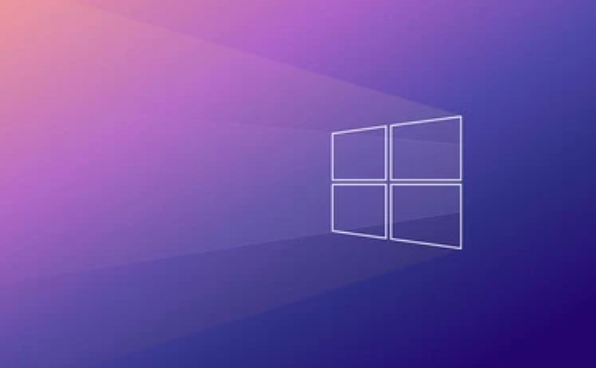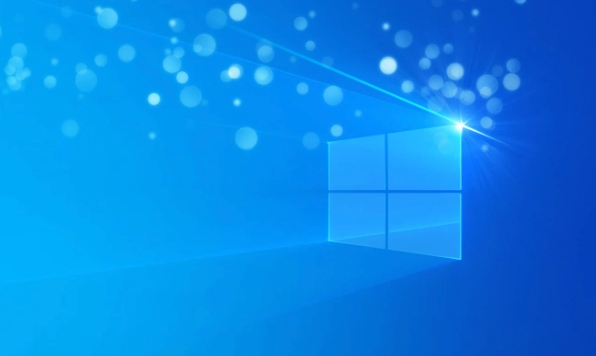Secure Boot is a mandatory requirement for Windows 11 installation, used to prevent malware from running at startup; before installation, you need to enter the motherboard BIOS/UEFI setting to enable Secure Boot. Different brands of motherboards have different shortcut keys to enter the settings, such as Asus is Del or F2, MSI is Del, Gigabyte is F2 or Del, Dell is F2, and Lenovo is F1 or F2; after entering, Secure Boot is usually found under the Boot or Security menu and set to Enabled; at the same time, make sure the system is booted in UEFI mode and turn off CSM; save the settings and restart it, and confirm the Secure Boot status; finally, when making a USB boot disk, you must also make sure to write to UEFI mode.

Secure Boot is a mandatory requirement for Windows 11 installations that prevent malware from running during startup. If you are going to install Windows 11 but have not enabled Secure Boot yet, you must first enter the motherboard BIOS/UEFI settings to manually open it.

Enter the UEFI settings interface
The way the motherboards of different brands enter the settings is slightly different. Generally, press a certain function key (such as F2, F10, Del or Esc) when powering on. Pay attention to the screen prompts when booting up, and prompts such as "Press ___ to enter setup" are usually displayed.

- Common motherboard shortcut keys:
- Asus (ASUS): Del or F2
- MSI: Del
- Gigabyte: F2 or Del
- Dell: F2
- Lenovo: F1 or F2
Once you enter the settings interface, you can start looking for the switch options for Secure Boot.
Find the Secure Boot settings item
After entering UEFI settings, Secure Boot is usually located under the Boot or Security menu. The interface layout of different motherboards is different, but the keyword is basically "Secure Boot" or "OS Type".

- References to several common brands:
- Asus:
Boot>Secure Boot - MSI:
Settings>Security>Secure Boot - Gigabyte:
Peripherals>Integrated Peripherals>Secure Boot Mode
- Asus:
Once found, set Secure Boot to Enabled . If the system supports multiple Secure Boot modes (such as Microsoft UEFI Platform), it is recommended to select the default recommended one.
Make sure UEFI mode is enabled and CSM is turned off
Secure Boot can only be effective in UEFI mode. If you started in Legacy BIOS mode before, Windows 11 cannot be installed. So you need to check it out:
- Find options like Boot Mode Select or CSM (Compatibility Support Module) .
- Set it to UEFI Only or disable CSM directly.
- Save the settings and restart, and then try to install Windows 11.
In addition, some motherboards may use Legacy to boot by default. At this time, even if Secure Boot is turned on, it is useless. Be sure to confirm it clearly.
Verify that Secure Boot is enabled
After exiting the settings and restarting, you can enter UEFI settings again to confirm whether Secure Boot is still in Enabled. Sometimes some motherboards will automatically adjust the relevant settings after saving.
If you are ready to install Windows 11, then make sure that the image written in UEFI mode when creating a USB flash drive, otherwise the installer may not recognize that Secure Boot is enabled.
Basically these are the operations. Although the steps may seem a bit cumbersome, as long as you go in order, it is actually not complicated but it is easy to ignore details.
The above is the detailed content of How to enable Secure Boot for Windows 11 installation. For more information, please follow other related articles on the PHP Chinese website!

Hot AI Tools

Undress AI Tool
Undress images for free

Undresser.AI Undress
AI-powered app for creating realistic nude photos

AI Clothes Remover
Online AI tool for removing clothes from photos.

Clothoff.io
AI clothes remover

Video Face Swap
Swap faces in any video effortlessly with our completely free AI face swap tool!

Hot Article

Hot Tools

Notepad++7.3.1
Easy-to-use and free code editor

SublimeText3 Chinese version
Chinese version, very easy to use

Zend Studio 13.0.1
Powerful PHP integrated development environment

Dreamweaver CS6
Visual web development tools

SublimeText3 Mac version
God-level code editing software (SublimeText3)
 How to convert MBR to GPT for Windows 11 installation
Jul 05, 2025 am 12:39 AM
How to convert MBR to GPT for Windows 11 installation
Jul 05, 2025 am 12:39 AM
To convert the hard disk from MBR to GPT to install Windows 11, you must first back up the data and confirm that the motherboard supports UEFI; 1. Automatic conversion using Windows installation media: Insert the USB disk and boot from USB, press Shift F10 on the installation interface to open the command prompt, enter diskpart, listdisk, selectdiskX, clean, convertgpt commands to complete the conversion. This method will clear all contents of the disk; 2. Lossless conversion of non-system disks in existing Windows: Use AOMEIPartitionAssistantStandard and other tools to right-click to convert to GPT disk. It is still recommended to backup data before operation;
 This copy of the Install macOS application is damaged
Jul 06, 2025 am 12:26 AM
This copy of the Install macOS application is damaged
Jul 06, 2025 am 12:26 AM
The "InstallmacOS is corrupted" prompt is usually caused by security mechanisms rather than file corruption. Common reasons include unofficial download sources, incomplete files, failure to verify signatures in the old system, or misjudgment of Gatekeeper; solutions include: 1. Forced opening of the installer through terminal commands and starting the USB flash drive; 2. Temporarily closing Gatekeeper verification; 3. Remount the installer and delete kernelcache file repair permissions; ways to avoid problems include prioritizing the use of official channels to download, verify the SHA256 value, selecting a trusted third-party site, and avoiding modification of the installation content.
 How to install Windows on a second monitor setup
Jul 17, 2025 am 02:42 AM
How to install Windows on a second monitor setup
Jul 17, 2025 am 02:42 AM
Connecting a second monitor when installing a Windows system will not affect the installation process, but the following things need to be paid attention to to ensure that the dual screens work normally: 1. There may be only one screen display during the installation process, and the main display device in the BIOS can be adjusted or the interface can be replaced; 2. After the installation is completed, select the display mode through Win P, and adjust the resolution, position and main display in the display settings; 3. If there is a black screen or unrecognizable situation, check the cable, update the driver or enter safe mode to reinstall the driver; 4. When using monitors with different resolutions, set the appropriate zoom ratio and enable the zoom repair option to optimize the display effect.
 How to check if Windows is activated and genuine
Jul 09, 2025 am 12:54 AM
How to check if Windows is activated and genuine
Jul 09, 2025 am 12:54 AM
1. Check the activation status in the settings; 2. Use the command prompt to check the activation status; 3. Check whether there are watermarks or restrictions; 4. Verify whether the system is genuine. To confirm whether Windows is genuine and activated, first open "Settings" → "System" → "About" → "Activate" to view the status, and it is normal to display "Windows is activated"; secondly, you can run the commands wmic and slmgr with administrator permissions to view the license details; if the desktop has a "Activate Windows" watermark, it means that it is not activated; finally, use "Windows Specifications" to confirm that the system type is retail or OEM version, and use Microsoft's official tools to verify the authenticity of the system.
 Windows 10 installation stuck on logo
Jul 06, 2025 am 12:01 AM
Windows 10 installation stuck on logo
Jul 06, 2025 am 12:01 AM
When booting the computer and logging in the Windows 10Logo interface is usually not damaged by hardware, but rather an error in system file loading. 1. Wait for 15 to 30 minutes first to confirm whether it is "fake death". If there is no progress, force restart; 2. Force shut down three times to enter the recovery environment, try to start repair or enter safe mode to troubleshoot driver and software conflicts; 3. Check the hard disk bad channel, clean the memory gold fingers and replace the slot to test the hardware problems; 4. Finally, you can try to reset the computer or install the system in a brand new way to solve it, and give priority to using the official website pure ISO mirror.
 How to back up my Mac before a macOS update?
Jul 15, 2025 am 12:33 AM
How to back up my Mac before a macOS update?
Jul 15, 2025 am 12:33 AM
Before updating macOS, you should back up your Mac. 1. Use TimeMachine to make a complete backup, insert the external hard disk and enable automatic regular backup; 2. Manually back up important files to cloud storage or external devices, and give priority to backing up documents, photos, bookmarks and other key information; 3. Create a bootable macOS installation disk for system repair or reinstallation, prepare a 16GB USB disk and run terminal commands to create. Backup can effectively prevent update failure or data loss, and it is more secure to prepare in advance.
 How to install Windows 11 without a Microsoft account
Jul 06, 2025 am 12:54 AM
How to install Windows 11 without a Microsoft account
Jul 06, 2025 am 12:54 AM
Yes, you can install and use Windows 11 without using a Microsoft account. 1. During the installation process, select "I don't have an Internet" or "Settings for Personal Use" and create a local account to skip the Microsoft account; 2. If you have installed it with a Microsoft account, you can switch to a local account in the settings; 3. You can still access all apps and system functions with a local account, but you will lose the functions of automatic synchronization between devices, cloud backup and some Microsoft store applications. Therefore, skipping Microsoft accounts is a feasible and appropriate option for users who focus on privacy or only use basics.
 How to create a macOS bootable installer in Windows?
Jul 13, 2025 am 01:10 AM
How to create a macOS bootable installer in Windows?
Jul 13, 2025 am 01:10 AM
Making a macOS bootable installer on Windows is not officially supported, but can be implemented through third-party tools. First, prepare a USB drive above 16GB, macOS installation image (.dmg/.iso) and tools such as TransMac or balenaEtcher; secondly, use TransMac to right-click the USB drive and select "RestorewithDiskImage" to write the image, or use balenaEtcher to select ISO files and target disk to write; finally note that the USB drive must be in GPT format, and install Hackintosh, you also need to manually configure EFI boot and use boot tools to bypass restrictions.






